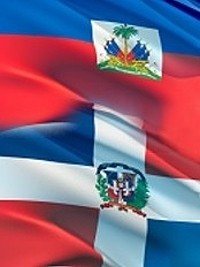|
||||||||||||||||||
| Download the revised decree and electoral calendar, published in the official journal |
|
|
Haiti - Denationalisation : Filing of dominican Bill 17/05/2014 12:43:20
Announced on February 3, at the Declaration of Jimani by the Minister to the Dominican Presidency Gustavo Montalvo, the bill "establishing a special regime for those born in the country but illegally registered by the Dominican State in the civil registry" to be deposited in the Dominican Congress on February 27 https://www.haitilibre.com/docs/Declaration-Conjointe-Jimani-Version-Finale.pdf , was finally submitted to Congress, Wednesday, May 14, by the Dominican President Danilo Medina, after a long process of reflection and consultation, which took into account, according to the Dominican Presidency, the contribution of various sectors of Dominican civil society. If this bill applies only to persons "denationalized" by 168-13 Judgment of the Dominican Constitutional Court, registered in the register of Civil Status, the number of our compatriots involved is relatively small. Recall that following the udits of the Dominican Civil Status Registry, Roberto Rosario, President of the Junta Central Electoral (JCE) had unveiled Thursday, November 7, 2013, during a press conference, the results of audits of foreigners registered in Dominican civil registry." "The Central Electoral Commission said it had found that in the books of the civil state of the country, 53.847 children of 117 foreign nationalities were registered since 1929. Of these, 29.455 children were legally registered in accordance with the regulations, because that their parents were residents and held a national identification card (cedula). The majority of children of foreigners, correspond to people of Haitian descent (36.326) whose 22.689 were enrolled in a regular form and 13.672 would have been improperly with invalid documents." If this bill included by cons, those born on Dominican territory whose parents of Haitian descent, were illegally in the country, the number of Haitian concerned, could be much more important, but no one knows the number in the absence of legal registration of these persons. A particularly worrying situation that between 500,000 and 750,000 of our compatriots lives in neighboring Republic illegally, paperless, a very large number can be considered stateless, since in the absence of a birth certificate Haitian [Haiti responsibility] they can not prove they are Haitian and and the Dominican authorities do not recognize their illegal presence. Recall that according to the Convention of New York, September 28, 1954 states that "a person who is not considered as a national by any State under the operation of its law" is sateless person. The Convention on Stateless stresses that it result among of the "administrative failures: a person may be left without nationality simply because his birth was not recorded" or even statelessness may result from "of a a combination of several laws between countries not allowing to obtain any nationality at birth. For example, the children, citizens of two different states that do not pass their nationality to children whose both parents are nationals, or the children of nationals from countries not knowing the right blood who are born in a country not knowing the right of soil". In addition, the Jesuit Migrant Service / Solidarity Fwontalye (SJM-Haiti) has launched a survey to identify the number of people living in border areas who may be affected of statelessness because they hold no paper of identity, and also determine the consequences of the sentence TC 168-13. This survey that will begin in May 2014 for 3 months, has he support of several partners, including the UN High Commissioner for Refugees (UNHCR). The results will be presented to the public and the State with the necessary recommendations, "in order to know not only the magnitude of the situation of these people, but also how to accompany them." LAST MINUTE: The bill was passed Friday on second reading by the House of Representatives and sent to the Dominican Senate for ratification before its promulgation. See also : HL/ HaitiLibre
|
|
|
Why HaitiLibre ? |
Contact us |
Français
Copyright © 2010 - 2026 Haitilibre.com |





